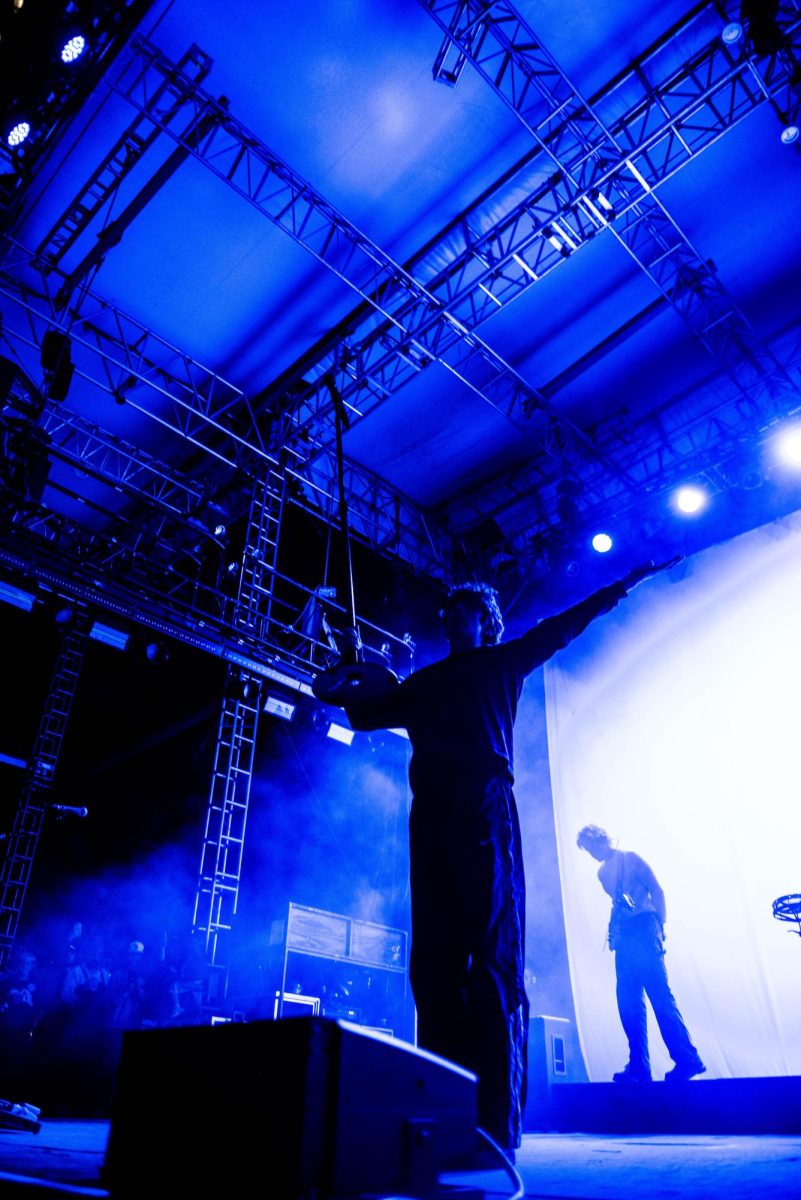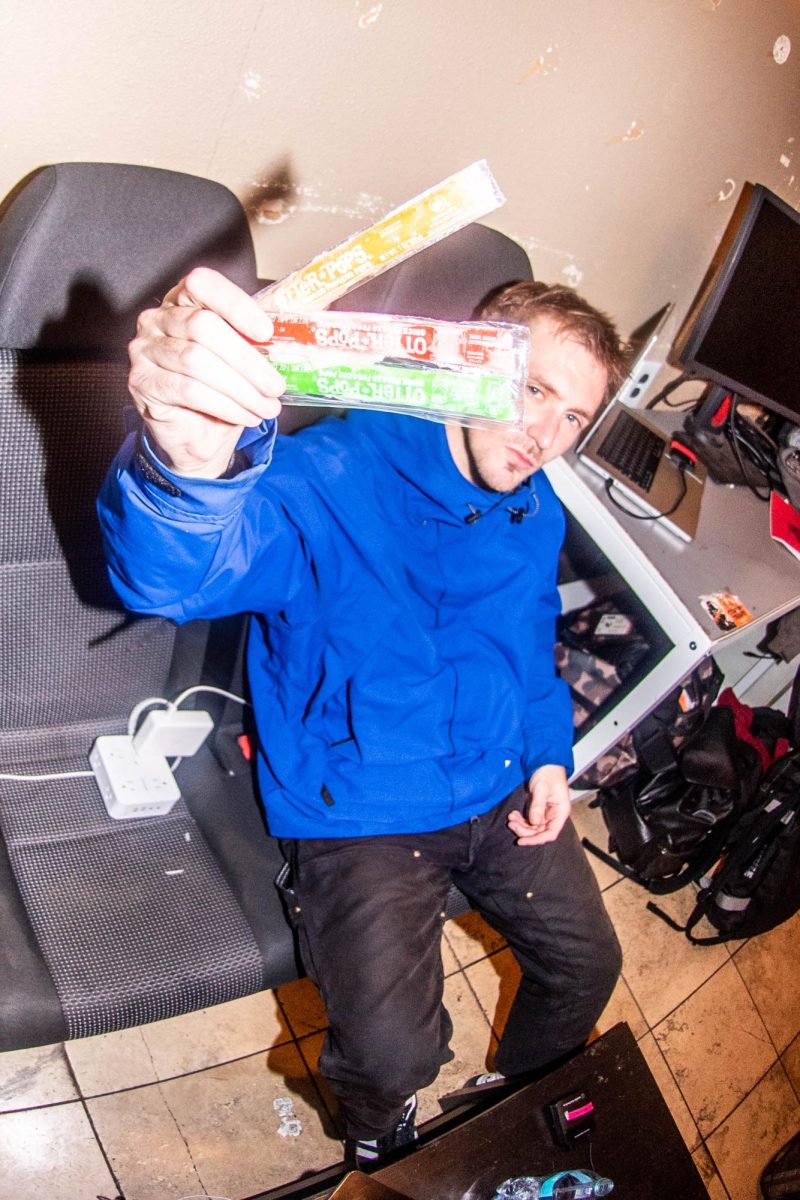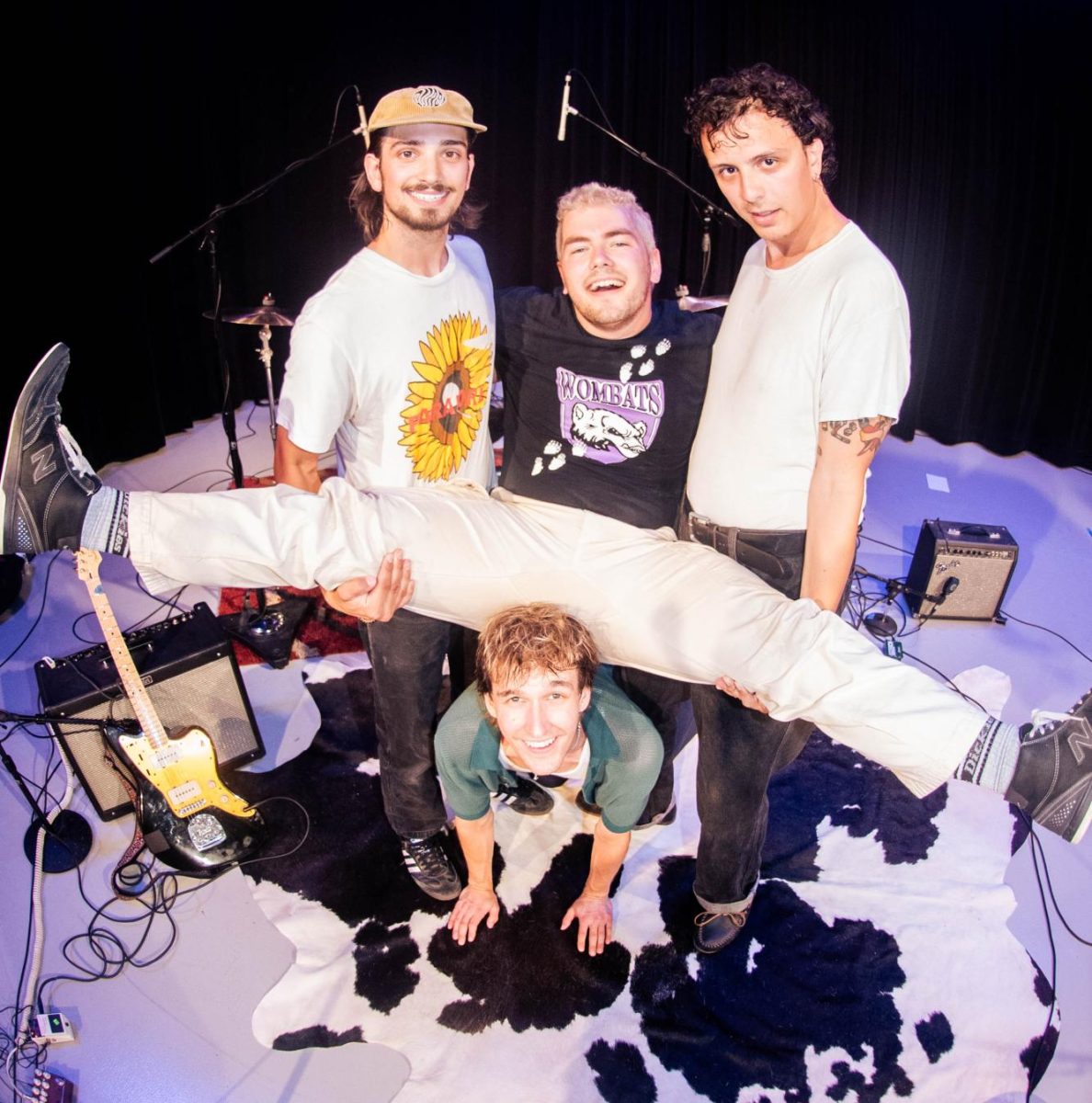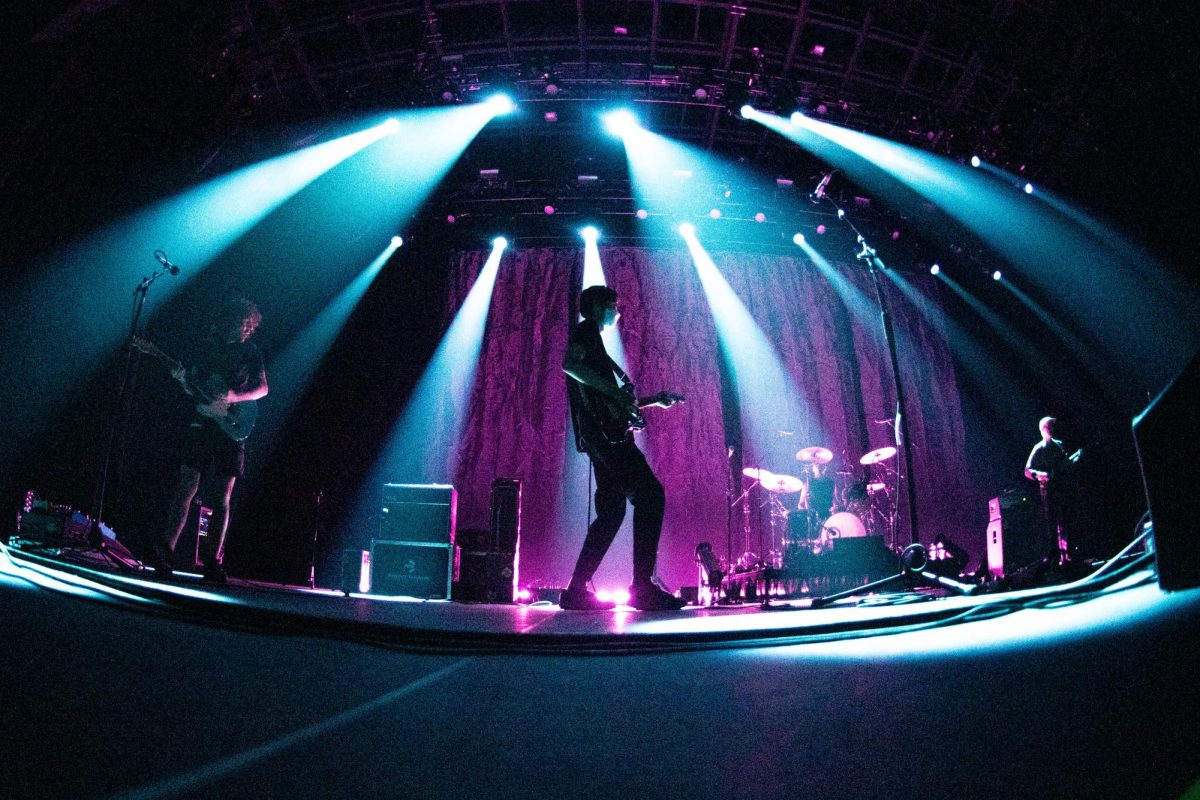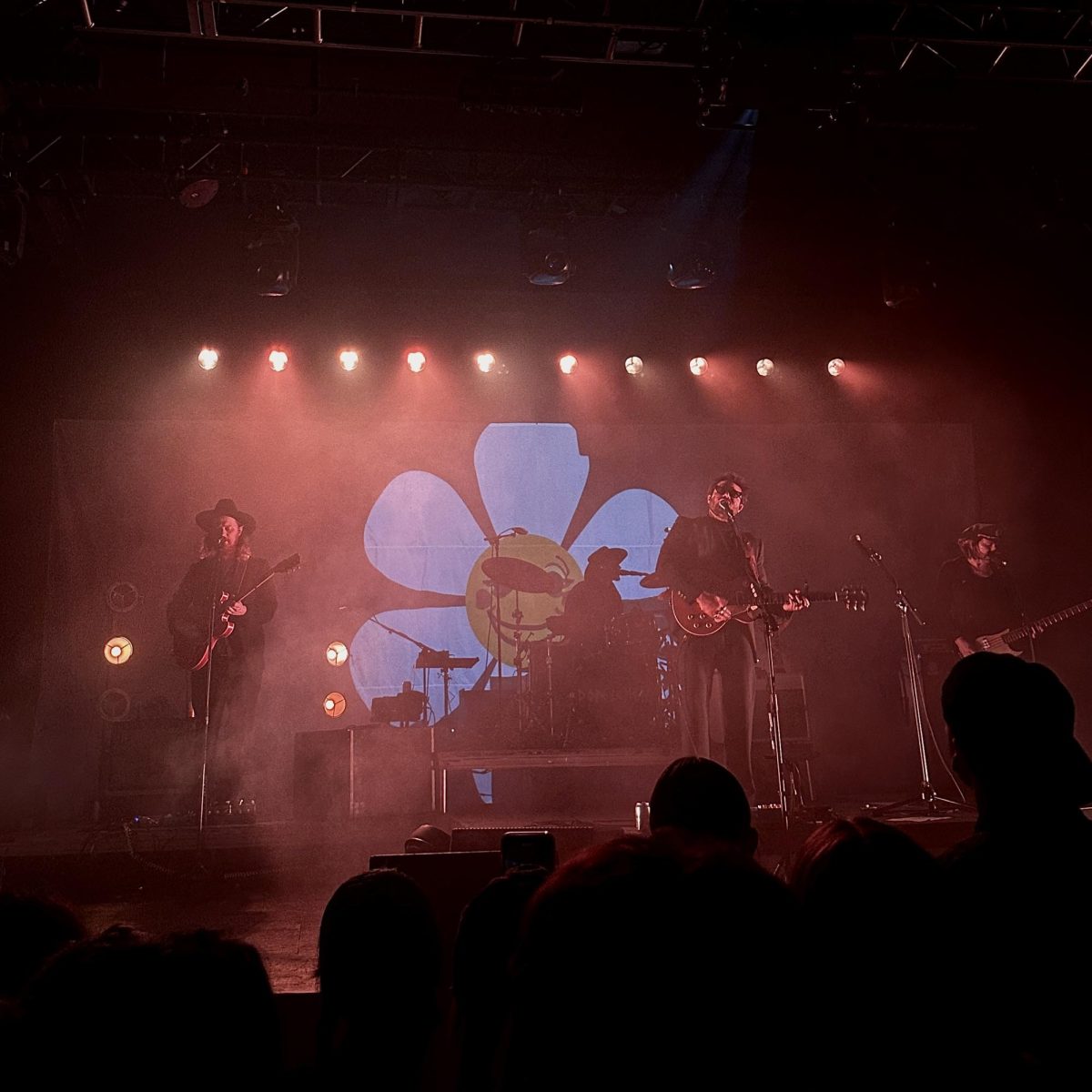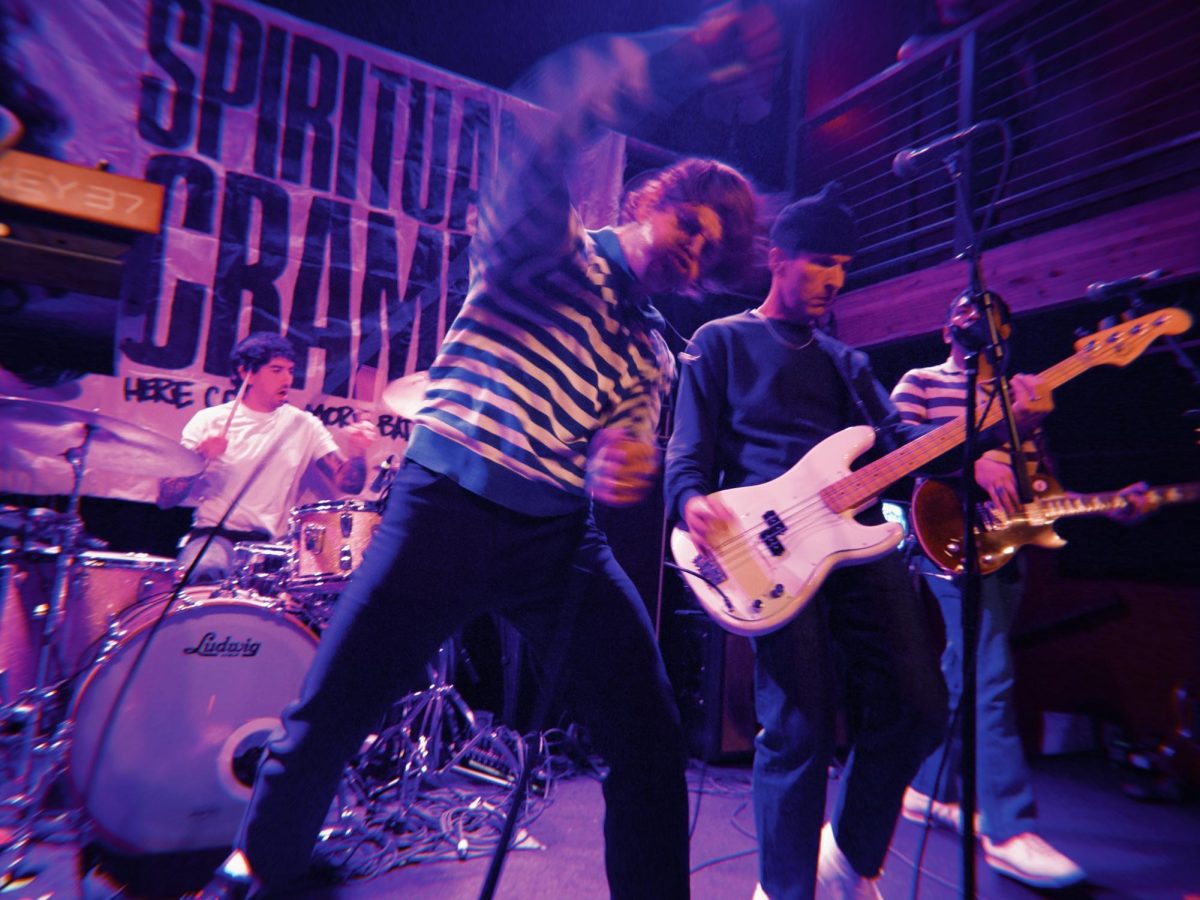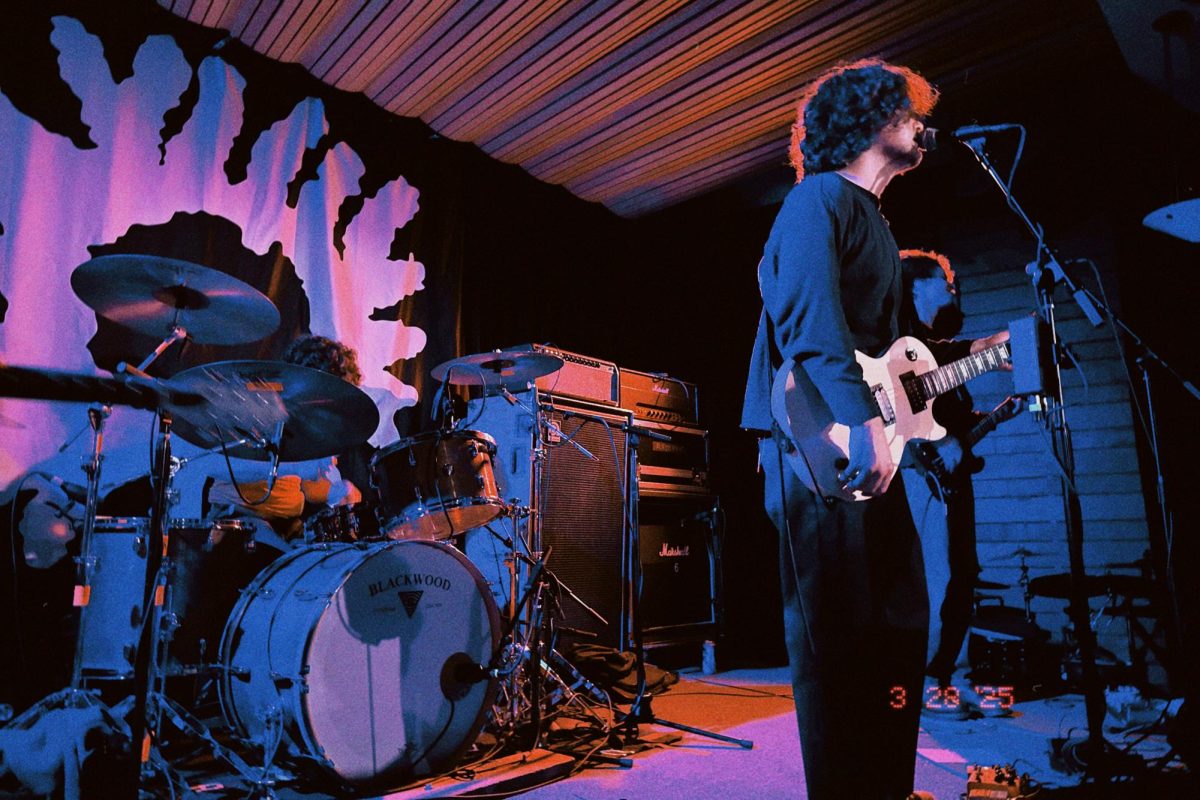And I can’t make the bitterness last
‘Cause I’ve used your moves on people in my past
I know I’ve gotta claim this pain
Waiting for a sign to swing my way
The lyrics of “Fazed Out,” from Turnstile’s 2016 album Nonstop Feeling, once poured through my pink earphones tethered to my phone as I walked home from 9th grade. Back then, Turnstile felt like a well kept secret for kids with dirty fingernails and an affinity for dragging things off the side of the road into their bedroom like fresh road kill made of sheet metal and decaying wood.
Now, that secret has gone public. Standing in a field of 7,000 at McMenamins Edgefield, I watched a band that once belonged to Baltimore basements command a massive outdoor stage like prophets of joy. The air is cool, not crisp, my shoes are already covered in dirt, a small rock lodged between the heel of my foot and the sole of my shoe and my throat is already sore from screaming before theyve even begun their performance. The lights dim, the entire crowd screams as Brendan Yates runs onto stge and the opening of “Never Enough” bellows through the trees. “T.L.C. (Turnstile Love Connection),” follows, detonating the crowd into motion. No pyrotechnics, no spectacle just sweat, trust, and communion. Brendan Yates’s movements were magnetic, his voice a rhythmic sermon. Daniel Fang’s drums cracked like thunder, syncing thousands of hearts into the same tempo.
Songs like “Endless,” “I Care / Dull,” and “Don’t Play” followed in rapid succession, a collision of melody and motion. Turnstile’s gift lies in how they collapse the boundaries between punk, pop, and pure catharsis how they transform rage into something radiant. In a time when collective joy often feels like an act of resistance, Turnstile offers permission to feel it fully.
The pit, chaotic as it was, felt strangely safe a microcosm of trust in a world where connection feels increasingly fragile. Hardcore has always been political, born from discontent and survival, but Turnstile’s brand of hardcore feels revolutionary in a new way. It’s not about nihilism or destruction it’s about reclamation. About finding euphoria in the wreckage of the world.
Then came “Light Design.” A massive disco ball descended, scattering silver light over the crowd. From the barricade, I turned and saw a galaxy of flashlights swaying in unison, as Yates’s voice rose over the field like a benediction. A hardcore show had become something celestial part mosh pit, part mass.
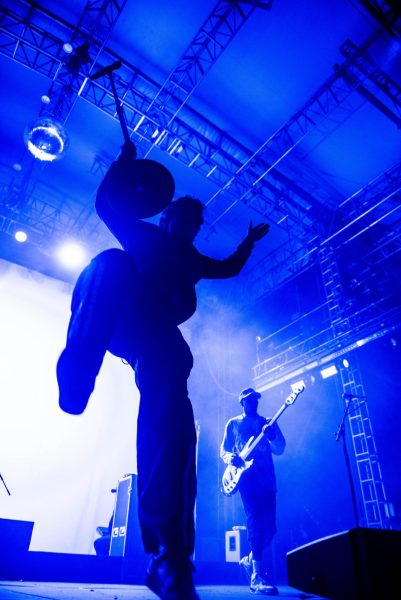
“Come Back for More / Fazed Out” followed the same song that once lived in my earbuds now vibrating through the grass beneath my feet time folded in on itself. Memory became movement. By the time “Sunshower” and “Keep It Moving” hit, the energy softened. Fans embraced between breakdowns; years of basement shows and shared survival radiated through every chord.
The finale was a study in catharsis. “Seein’ Stars” shimmered beneath the mirrored light, and “Holiday” erupted into a unified chant of “Fuck ICE,” fists raised. It was anger and release, politics and joy all braided together. Turnstile’s message was clear: in a culture driven by alienation and fear, unity itself becomes an act of defiance.
As “Look Out for Me” echoed into the cool Portland air, I realized Turnstile hadn’t just played a show, they’d built a sanctuary. A space where movement became prayer, and joy became resistance.
I left covered in sweat and dirt, rocks in my shoes, my once-lost glasses miraculously intact. At some point, the key tied to my wrist had flown off, but someone had already turned it in before I noticed. A small kindness in a night full of noise. Proof that even in the pit, Turnstile’s community looks out for one another.
In a world that feels endlessly divided, Turnstile reminds us that joy real, communal, body-shaking joy, is still possible. That maybe the loudest act of rebellion left is to dance.

